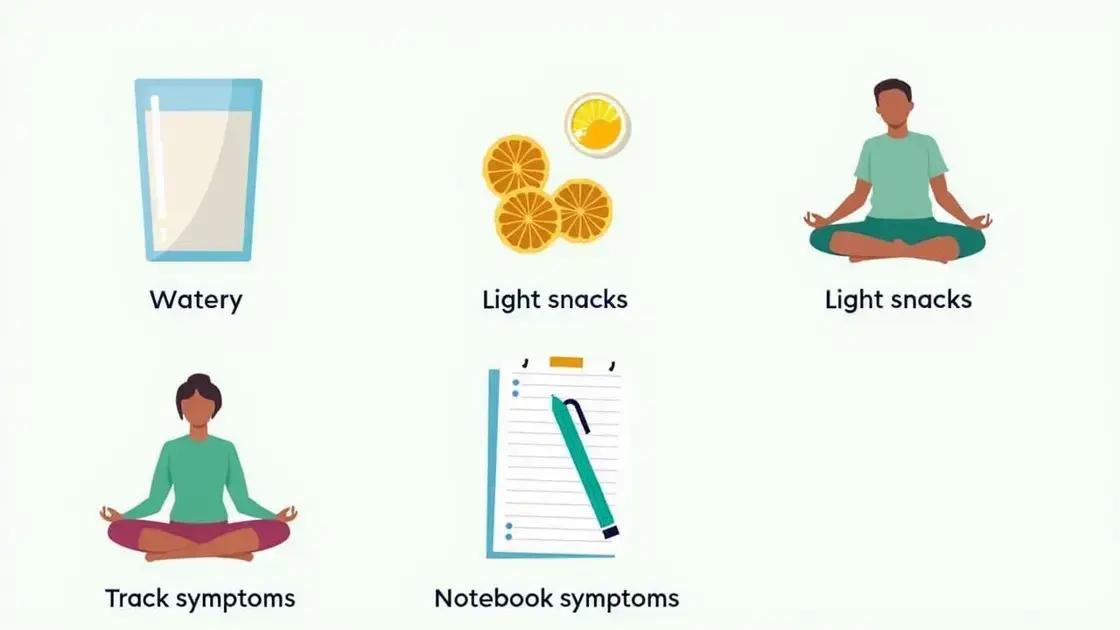The side effects of Erettus can include nausea, headaches, dizziness, fatigue, and dry mouth. It is essential to consult a doctor if side effects are severe or persistent, and you can manage them by staying hydrated, eating small meals, and resting. Always keep track of your symptoms and discuss any concerns with your healthcare provider for optimal treatment.
Are you considering using Erettus? It’s essential to be aware of the side effects that can accompany this treatment. Many users report various experiences, and understanding these side effects is crucial for informed decision-making. In this post, we delve into Erettus, discussing common side effects and tips on how to manage them effectively, ensuring you make educated choices about your health.
Understanding Erettus

Erettus is a medication that is gaining attention for its potential benefits. Understanding how it works can help users make informed decisions. What is Erettus? It is primarily prescribed to treat various conditions, and it belongs to a specific category of drugs.
How Does Erettus Work?
Erettus functions by interacting with certain receptors in the brain. This interaction can lead to various effects on mood, desire, and overall well-being. It is commonly used for treating individuals who may be experiencing specific health issues.
Who Should Consider Erettus?
Not everyone is a candidate for Erettus. It is crucial to consult with a healthcare provider to determine if this medication is suitable based on individual health needs and conditions.
Potential Benefits of Erettus
For those who qualify, Erettus may offer several advantages. These can include improved mood, relief from specific symptoms, or enhanced quality of life. Each user’s experience may vary.
Understanding Erettus and its applications is essential for anyone considering this treatment. By being informed about how it works and who it is intended for, users can feel more prepared when discussing it with their healthcare provider.
Common Side Effects

When taking Erettus, it’s important to be aware of the common side effects that some users experience. These effects can vary greatly among individuals.
Typical Side Effects
Common side effects may include:
- Nausea
- Headaches
- Dizziness
- Fatigue
- Dry mouth
Many users may experience mild symptoms, which can lessen as the body adjusts to the medication.
Less Common Side Effects
Some individuals might face less typical side effects such as:
- Changes in appetite
- Difficulty sleeping
- Increased anxiety
- Rashes or skin reactions
If you notice any unusual effects that persist, it is best to consult your doctor for advice.
Impact on Daily Life
For some, these side effects may interfere with daily activities. If symptoms affect your mood or routine, communicate this to your healthcare provider.
Being informed about common side effects helps in managing expectations and being proactive in seeking support or adjustments in treatment.
When to Consult a Doctor

Knowing when to consult a doctor while using Erettus is vital for your health. If you experience side effects that are severe or do not improve, it is essential to seek medical advice.
Signs to Reach Out
Contact a healthcare provider if you notice:
- Severe headaches that do not fade
- Persistent nausea or vomiting
- Rapid changes in mood or behavior
- Skin rashes that worsen over time
- Symptoms of an allergic reaction such as swelling or difficulty breathing
These symptoms may indicate that Erettus is not the right medication for you.
Regular Check-Ins
Additionally, it is wise to have regular follow-ups with your doctor to monitor your progress and any side effects. These appointments will help ensure your treatment is safe and effective.
Questions to Ask Your Doctor
Prepare questions to discuss with your healthcare provider, including:
- How long should side effects last?
- What side effects are typical for this medication?
- Are there alternatives if side effects are bothersome?
Being proactive in your health care leads to better treatment outcomes and ensures you feel supported during your medication journey.
Tips for Managing Side Effects

Managing side effects from Erettus can be challenging. However, there are several tips that can help ease these issues and improve your overall comfort while on the medication.
Stay Hydrated
Drinking plenty of water can help reduce symptoms like dizziness and dry mouth. Aim for at least 8 glasses of water each day to stay well-hydrated.
Eat Small Meals
Eating smaller, more frequent meals can help reduce nausea. Try to avoid heavy or spicy foods that might aggravate your stomach.
Rest and Relaxation
If you feel fatigued or dizzy, make sure to take breaks and rest. Simple relaxation techniques like deep breathing or light stretching can also help improve your well-being.
Monitor Your Symptoms
Keep a log of any side effects you experience. Note their frequency and intensity. This information can be valuable to share with your healthcare provider during check-ups.
By employing these tips, you can better manage the side effects of Erettus, making your treatment journey smoother and more comfortable.
Understanding the Side Effects of Erettus
Being informed about the side effects of Erettus is essential for anyone considering this medication. Knowledge empowers users to make better decisions regarding their health and treatment options.
From recognizing common side effects to knowing when to consult a doctor, understanding these aspects will help you navigate your experience safely. Additionally, implementing effective management tips can significantly enhance your comfort while using Erettus.
By staying proactive and communicating with healthcare providers, users can optimize their treatment journey and enjoy the benefits of Erettus while minimizing any adverse effects.
FAQ – Frequently Asked Questions about Erettus
What are the common side effects of Erettus?
Common side effects of Erettus may include nausea, headaches, dizziness, fatigue, and dry mouth. These symptoms can vary from person to person.
When should I consult a doctor while taking Erettus?
You should consult a doctor if you experience severe or persistent side effects, such as severe headaches, significant mood changes, or allergic reactions.
How can I manage the side effects of Erettus?
Stay hydrated, eat small meals, rest as needed, and monitor your symptoms closely. Keeping a log can help you track any changes.
Are there alternatives to Erettus?
Yes, there may be alternative medications available. It’s essential to discuss these options with your healthcare provider.
What should I do if I experience severe side effects?
If you experience severe side effects, it is vital to seek immediate medical attention to ensure your safety.
How long do side effects from Erettus typically last?
Side effects can vary in duration; for many users, they may decrease as the body adjusts to the medication. Always check with your doctor if they persist.












